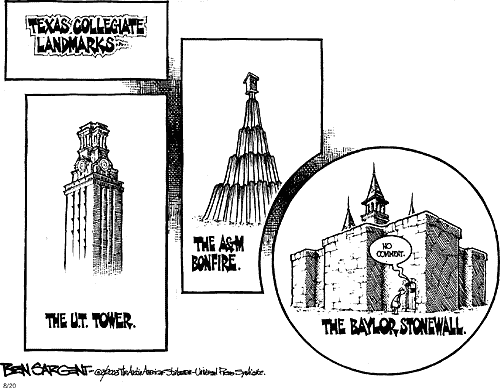Unintended consequences. Be care what you wish for, you might get it. The Bushies wanted to wage war on Iraq to end terrorism. Instead, they converted Iraq into a terrorist battleground. Our troops are caught in the middle. As this Harvard expert on religious militants says, We must make clear that the war wasn't an American plot to steal Iraq's oil and denigrate Islam, as the extremists argue. We have not demonstrated either allegation to be false to anyone in Iraq (and certainly not me). We can't get the electricity going in Baghdad and we can't keep it going in Ohio. Can anyone out there spell Q-U-A-G-M-I-R-E? If this be (fair & balanced) treason make the most of it!
[x NYTimes]
August 20, 2003
OP-ED CONTRIBUTOR
How America Created a Terrorist Haven
By JESSICA STERN
Yesterday's bombing of the United Nations headquarters in Baghdad was the latest evidence that America has taken a country that was not a terrorist threat and turned it into one.
Of course, we should be glad that the Iraq war was swifter than even its proponents had expected, and that a vicious tyrant was removed from power. But the aftermath has been another story. America has created — not through malevolence but through negligence — precisely the situation the Bush administration has described as a breeding ground for terrorists: a state unable to control its borders or provide for its citizens' rudimentary needs.
As the administration made clear in its national security strategy released last September, weak states are as threatening to American security as strong ones. Yet its inability to get basic services and legitimate governments up and running in post-war Afghanistan and Iraq — and its pursuant reluctance to see a connection between those failures and escalating anti-American violence — leave one wondering if it read its own report.
For example, the American commander in Iraq, Gen. John Abizaid, has described the almost daily attacks on his troops as guerrilla campaigns carried out by Baathist remnants with little public support. Yet an increasing number of Iraqis disagree: they believe that the attacks are being carried out by organized forces — motivated by nationalism, Islam and revenge — that feed off public unhappiness.
According to a survey this month by the Iraq Center for Research and Strategic Studies, nearly half of the Iraqis polled attribute the violence to provocation by American forces or resistance to the occupation (even more worrisome, the Arabic word for "resistance" used in the poll implies a certain amount of sympathy for the perpetrators). In the towns of Ramadi and Falluja, where many of the recent attacks have taken place, nearly 90 percent of respondents attributed the attacks to these causes.
Why would ordinary Iraqis not rush to condemn violence against the soldiers who liberated them from Saddam Hussein? Mustapha Alani, an Iraqi scholar with the Royal United Services Institute in London, gave me a possible explanation: even in the darkest days of the Iran-Iraq war, most Iraqis (other than Kurds and Marsh Arabs) did not have to worry about personal security. They could not speak their minds, but they could count on electricity, water and telephone service for at least part of the day. Today they fear being attacked in their bedrooms; power, water and telephones are routinely unavailable. As Mr. Alani put it, Iraqis today could could care less about democracy, they just want assurance that their daughters won't be raped or their sons kidnapped en route to the grocery store.
Blaming the violence on isolated Baath loyalists was perhaps more plausible when the violence was centered in the Sunni heartland. But the recent riots in the southern Shiite city of Basra, and the sabotage of a major oil pipeline in the Kurdish north, make clear that other regions may not be peaceable indefinitely.
Shiites widely supported the operation to remove Saddam Hussein, but they are furious about what they see as American incompetence since the war. This set the stage for religious extremists. Moktada al-Sadr, a vitriolic cleric in Basra, says he has recruited a 5,000-man Shiite army to take on the occupiers. In public he is urging his followers to engage in "peaceful" resistance, but some have told Western reporters that they are prepared to carry out "martyrdom operations" if and when they receive orders to do so.
In addition, in the run-up to the war, most Iraqis viewed the foreign volunteers who were rushing in to fight against America as troublemakers, and Saddam Hussein's forces reportedly killed many of them. Today, according to Mr. Alani, these foreigners are increasingly welcomed by the public, especially in the former Baathist strongholds north of Baghdad.
As bad as the situation inside Iraq may be, the effect that the war has had on terrorist recruitment around the globe may be even more worrisome. Even before the coalition troops invaded, a senior United States counterterrorism official told reporters that "an American invasion of Iraq is already being used as a recruitment tool by Al Qaeda and other groups." Intelligence officials in the United States, Europe and Africa say that the recruits they are seeing now are younger than in the past. Television images of American soldiers and tanks in Baghdad are deeply humiliating to Muslims, even those who didn't like Saddam Hussein, explained Saad al-Faqih, head of Movement for Islamic Reform in Arabia, a Saudi dissident group in London. He told me that some 3,000 young Saudis have entered Iraq in recent months, and called the war "a gift to Osama bin Laden."
Hassan Nasrallah, head of the Lebanese Shiite group Hezbollah, told a crowd of 150,000 in a March religious observance that the United States was trying to create a "tragedy for humanity and to spread chaos in the world" and predicted that the people of Iraq and the region would "welcome American troops with rifles, blood, arms, martyrdom."
The occupation has given disparate groups from various countries a common battlefield on which to fight a common enemy. Hamid Mir, a biographer of Osama bin Laden, has been traveling in Iraq and told me that Hezbollah has greatly stepped up its activities not only in Shiite regions but also in Baghdad.
Most ominously, Al Qaeda's influence may be growing. It has been linked to attacks as far apart as Indonesia, Saudi Arabia and Morocco. One suspect in yesterday's attack is Ansar al-Islam, a Qaeda offshoot whose camps in Northern Iraq were destroyed early in the war. In recent weeks American officials acknowledged that members of the group had slipped into Iraq from Iran, had begun organizing in Baghdad and were suspected of plotting bombings, including the Aug. 7 attack on the Jordanian Embassy. In addition, Mr. Mir reported that Al Qaeda was carving out new training grounds in the border region between Iraq and Syria.
While there is no single root cause of terrorism, my interviews with terrorists over the past five years suggest that alienation, perceived humiliation and lack of political and economic opportunities make young men susceptible to extremism. It can evolve easily into violence when government institutions are weak and there is money available to pay for a holy war. America is unlikely to win the hearts and minds of committed terrorists. After some time on the job, it is hard for them to imagine another life. Several described jihad to me as being "addictive."
Thus the best way to fight them is to ensure that they are rejected by the broader population. Terrorists and guerrillas rely on getting at least some popular support. America's task will be to restore public safety in Iraq and put in place effective governing institutions that are run by Iraqis. It would also help if we involved more troops from other countries, to make clear that the war wasn't an American plot to steal Iraq's oil and denigrate Islam, as the extremists argue.
The goal of creating a better Iraq is a noble one, but a first step will be making sure that ordinary Iraqis find America's ideals and assistance more appealing than Al Qaeda's.
Jessica Stern, a lecturer at Harvard's Kennedy School of Government, is author of Terror in the Name of God: Why Religious Militants Kill.
Copyright © 2003 The New York Times Company

